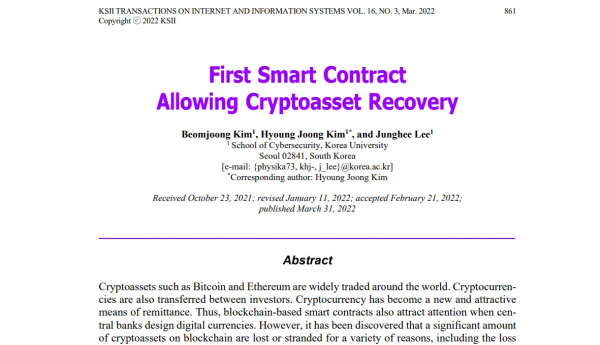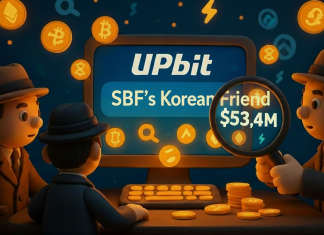
Currently, the moment you lose your private key your cryptocurrency effectively loses its value as long as you cannot remember it.
For example, if you lose the private key of an address containing 100 bitcoins, $4.24 million vanishes into thin air. If a father, who was keeping 1,000 Ethereum, suddenly passes away, there is no way for his children, who do not know the private key, to get $3.21 million. The same is true if you accidentally send coins to an address that does not exist.
If you are trying to enumerate all the numbers to find the private key, it is almost impossible to succeed with the current computing power.
However, a simple method to solve this problem was implemented as a Smart Contract. Professor Kim Hyoung Joong’s team at the Graduate School of Information Security at Korea University succeeded to address this issue.
The principle is simple. The team used the method of sending coins to a smart contract account for temporary storage. By allowing cryptoassets to be sent to a backup account address, they developed a workable alternative.
If Alice needs to send X coins to Bob, there is a direct way for Alice to send it to Bob, but in the case of a forgotten key as above, there is no solution.
However, with the smart contract account created by the Korea University team, there is another way: Alice can send coins to the smart contract account. Since Bob knows the private key, he can move the coin from the smart contract account to his wallet at any time.
If Bob has forgotten his private key, he can send the corresponding coin to Alice again. Anyone can make a request to send X to Alice. Alice can receive the coin and send it directly to Bob’s newly created address, but it can also be sent back to the smart contract account.
Professor Kim Hyoung Joong said that this method is not only used to solve the problem of losing private keys. He emphasized, “It can also be used as a solution when a private key is lost in the process of sharing important data or information through blockchain.” In addition, he said, “The decentralized custody business can also use this smart contract like a custody DAO (decentralized autonomous organization).”
Bruce Yeon(2022.04.23) First-Ever Smart Contract Allowing Cryptoasset Recovery
retrieved from http://www.koreaittimes.com/news/articleView.html?idxno=112546






